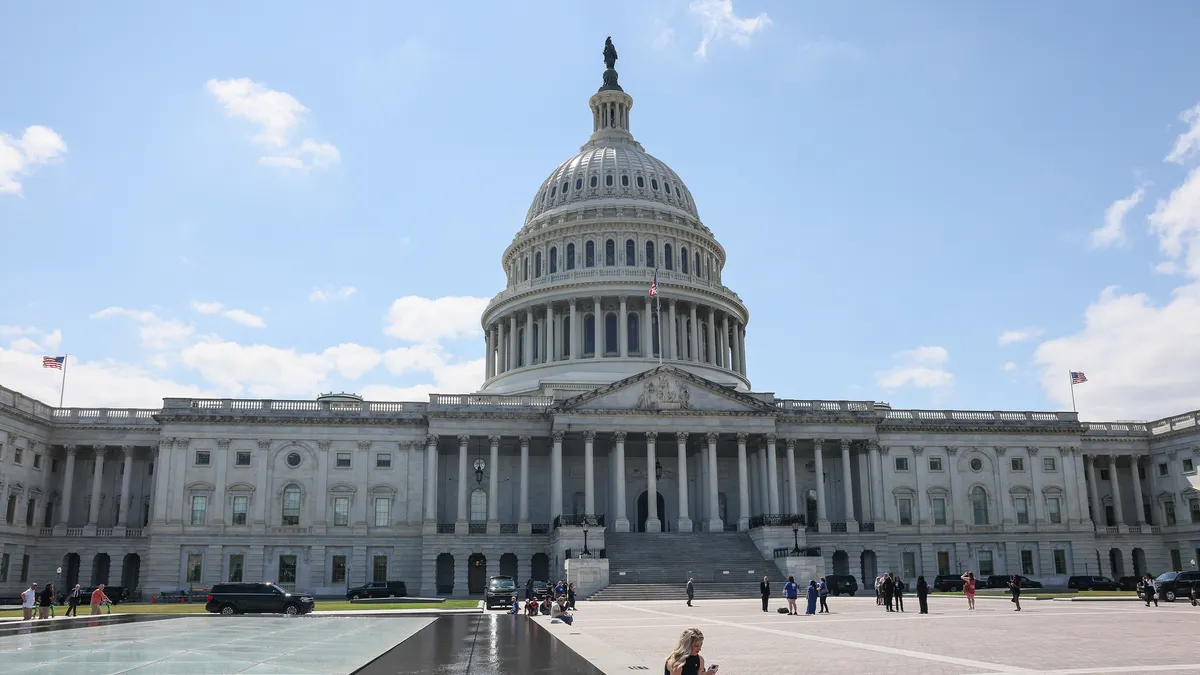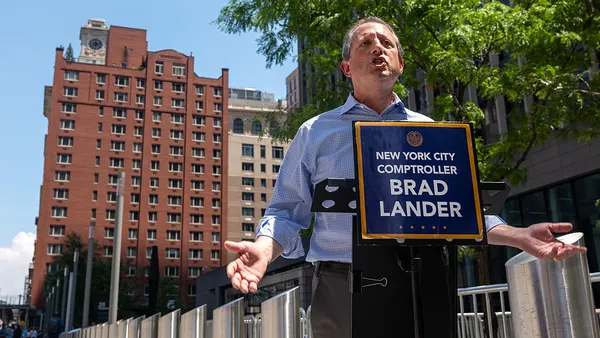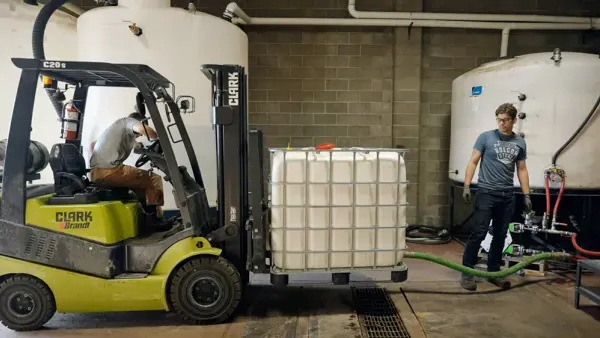A day after the House Judiciary Committee released an interim report claiming that environmental groups and financial institutions are “colluding on decarbonization,” members of these parties denied collusion allegations at a hearing Wednesday.
Representatives from environmental group Ceres, activist investor Arjuna Capital and the California Public Employees’ Retirement System were summoned to answer questions from the majority. The three groups maintained that their organizations make decisions independent of one another. The trio, along with Climate Action 100+, were called “four of the most radical offenders” of what the committee’s report called a “climate cartel.”
Minnesota Attorney General Keith Ellison, a Democrat and former House representative, told the committee that despite allegations that ESG investing and collaboration represent illegal conspiracies, “no one making these accusations has produced any actual evidence of an agreement among competitors with anticompetitive effects in a market.”
“Institutional investors and financial professionals must continue to have the freedom to weigh the full spectrum of risk to the value of their investments,” Ellison said in his opening statement. “Both the logic of the market and the law support their doing so.”
The hearing was held by the Subcommittee on Antitrust, Commercial and Administrative Law, whose Ranking Member J. Louis Correa (D-Calif.) said none of the groups “boycott the oil and gas industry,” and they have “the absolute rights to organize and influence the companies that they own.”
“This is called capitalism. This is called free enterprise, and we should encourage it,” Correa said. “This hearing today is not about antitrust. This hearing is an attack and a way to intimidate responsible parties for carrying out their fiduciary duties.”
Dan Bienvenue, CalPERS interim chief investment officer, said the nation’s largest pension fund currently has holdings in 42 oil and gas companies. He said that is evidence of “engagement, not divestment.”
“Our primary fiduciary duty is to make good investments to fulfill our responsibility to our members,” Bienvenue said. “We believe companies’ long-term value creation for our members requires effective identification, monitoring and management of risks and opportunities, including climate change risk.”
Ceres CEO Mindy Lubber said the organization “firmly disagrees” with the description of their work as collusion.
“As far as antitrust, I am not an expert on this topic, but I can tell you that what we support is a voluntary, private-sector-led process in which investors and businesses work to adapt to a changing world,” Lubber said. “This is how companies and the American economy remain profitable and competitive.”
Arjuna Capital Chief Investment Officer Natasha Lamb said the allegations the groups face are “entirely unsupported by fact.” She also disagreed with the premise that the groups had the collective power to disrupt the oil and gas industry.
“Unlike oil cartels, which do wield the power to impact energy prices, we do not,” she said.
Or as Correa put it: “Labeling something a cartel doesn't make it a cartel.”
The California representative noted that the committee received over 250,000 documents encompassing roughly 2.5 million pages, yet none of them revealed “evidence of any wrongdoing.”










